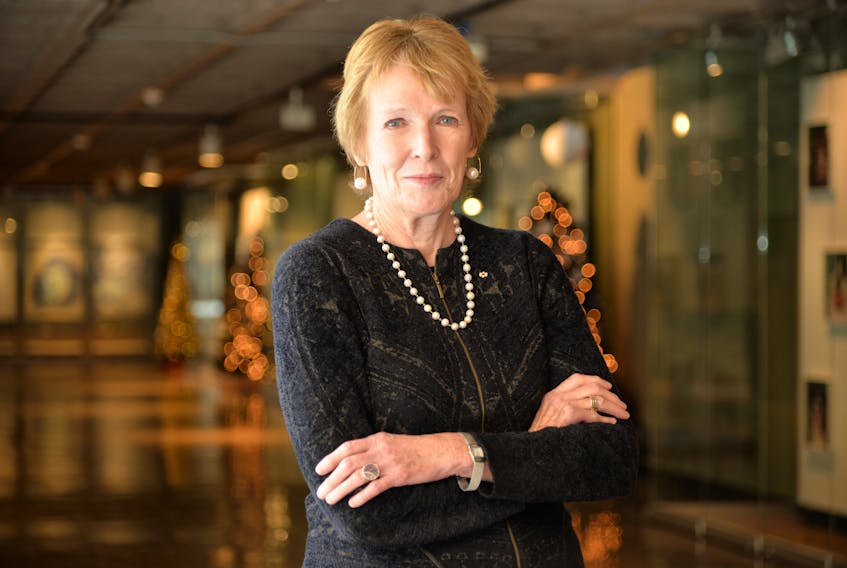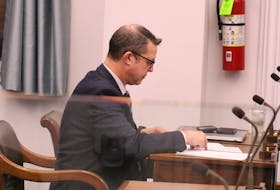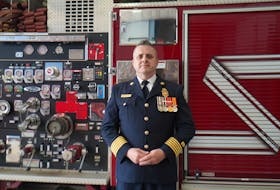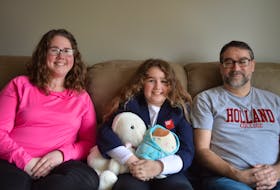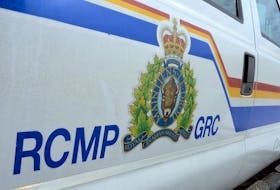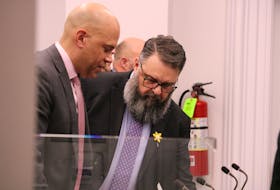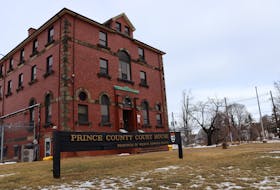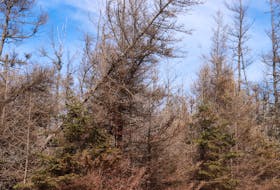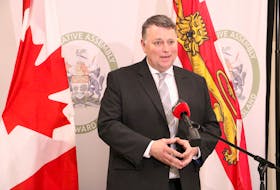CHARLOTTETOWN, P.E.I. - The First World War impacted Canada in many ways.
But one way it did so was by serving as an important stage for our nation becoming independent from Britain, says Margaret MacMillan, the 2018 recipient of the Symons Medal.
“By the end of the war, we have a different relationship with Britain than we do at the beginning.”
MacMillan received the medal on Friday at the Confederation Centre of the Arts. She also delivered a presentation called The Lion’s Cub: The First World War and the Evolution of the Canadian Nation.
“Lion’s Cub,” she explained, is a reference to a famous cartoon that shows a “slightly weary looking” British Lion in a rowboat with young, vigorous lion cubs – Australia, New Zealand, South Africa and Canada.
“And, the idea is that the younger generation coming along is going to contribute to the strength of the empire. I chose it because there was a big debate in Canada and elsewhere in the empire about how much they wanted to contribute to the British Empire,” she said prior to the ceremony.
“And so, it just seemed to me that Canada was at a crossroads, as was Australia, New Zealand and South Africa, about how much part of the empire they were, and how that was going to evolve.”
MacMillan, originally from Toronto, is an emeritus professor of international history and an honourary fellow at the University of Oxford (St. Anthony’s College).
The other ways Canada contributed to the war effort was with manpower, finances and manufacturing, which in turn helped develop our economy, such as the shipbuilding industry.
“In some ways, we have a boom,” she said.
The war effort also led to social change, such as contributing to women getting the right to vote. Even conscription (in military or public service) can be seen in a positive light in that it can “make people feel part of the same community,” she said.
But the war effort also opened up divisions in Canada – between English and French and cities and country – that remained until the Second World War.
“It has beneficial and negative effects on Canadian society,” she said.
In terms of how Canada has evolved, and is evolving, MacMillan said that we have a different experience compared to the U.S. and its War of Independence and 1776 Declaration of Independence.
“We don’t have a single act of rebellion or revolution that defines us,” she said. “We, like Australia and New Zealand, moved gradually toward full nationhood. And, that made us very different, I think.”
Given this, Canadians don’t expect “dramatic turnabouts.”
“Because of our size, we’ve always had to compromise and find ways of living together,” she said.
The medal is awarded to a distinguished individual who has made a significant contribution to Canadian life. Previous recipients include Prime Minister Justin Trudeau and Prince Charles.
She said her contribution to Canadian life is by helping to make history more accessible.
“(Historians) ought to try to communicate with people because it’s important. They should know their own history. And, we should help to explain it,” MacMillan said.
But history can also have a dangerous side.
“It was used by Serbian nationalists and Croatian nationalists to destroy Yugoslavia. So, I think we’ve got populist movements around the world who are peddling various versions of fake history,” she said.
History can also give Canadians a better sense of who we are, MacMillan said.
“We all tell ourselves nice stories. And, we Canadians says we’re such a nice and kind people. But we haven’t always been nice and kind. You know, it’s important. Our relations with the Indigenous haven’t been great, and we should not pat ourselves on the back too much,” she said.
“I don’t think it means we should see ourselves as exceptionally wicked or dreadful. But, just remember that we’re not always what we like to think we are.”
More on past Symons Medal recipients
Confederation Centre awards Paul Gross with Symons Medal
Prime Minister Justin Trudeau receives 2017 Symons Medal in P.E.I.
Acadian author questions why she was chosen to give major lecture

